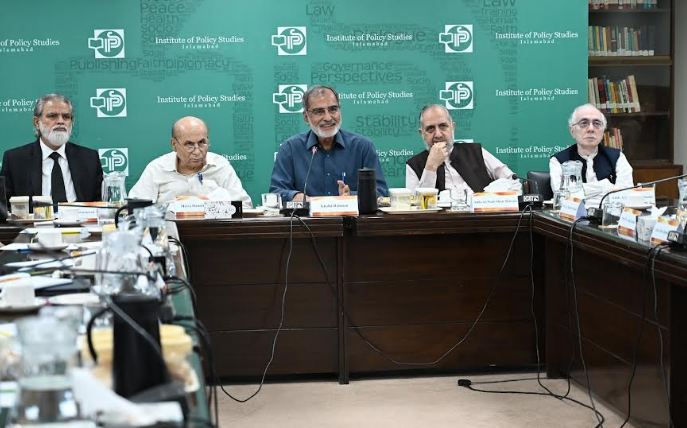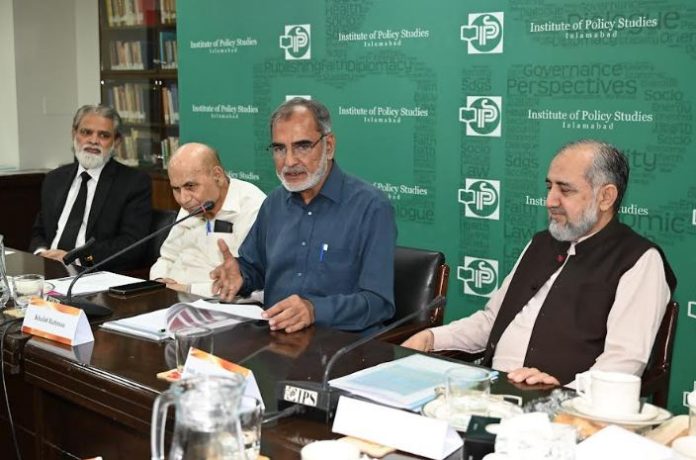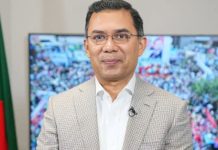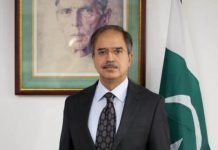ISLAMABAD, SEP 15 (DNA) – Pakistan faces complex domestic and international challenges, yet its future prospects hinge on harnessing the potential of its youth, strengthening research, leveraging technology, and driving policy innovation to translate resources and civilizational strengths into sustainable progress. Moreover, the Principles of Policy enshrined in the Constitution provide direction for every aspect of national life and should serve as guiding benchmarks for policy research.

This was underscored by intellectuals, academics, diplomats, and technocrats from diverse fields at the annual meeting of the National Advisory Council (NAC) of the Institute of Policy Studies (IPS), Islamabad. The gathering serves as a platform to draw intellectual input from veteran scholars and practitioners, guiding IPS’ research activities and shaping realistic ideas for addressing pressing national issues.
The forum, chaired by Khalid Rahman, chairman IPS, was addressed by Dr. Syed Mohammad Anwer, Justice, Federal Shariat Court, Dr. Shahida Wizarat, dean, College of Economics and Social Development, IoBM, Karachi, Dr. Anwar-ul-Hassan Gilani, chairman, Pakistan Council for Science and Technology, Dr. Syed Tahir Hijazi, former member (governance), Planning Commission of Pakistan, Dr. Mukhtar Ahmed, former chairman, Higher Education Commission, Syed Abu Ahmad Akif, former federal secretary, Mirza Hamid Hassan, former federal secretary Water and Power, Ambassador (r) Masood Khalid, Dr. Razia Sultana, vice chancellor, Women University Mardan, Dr. Asad Zaman, former vice chancellor, Pakistan Institute of Development Economics, Vice Admiral (r) Iftikhar Ahmed Rao, Dr. Syed Junaid Zaidi, former rector of COMSATS University, Prof. Jalil Aali, poet and scholar, Dr. Waqar Masood Khan, former federal secretary, finance, Dr. Saima Hamid, former vice chancellor, Fatima Jinnah Women University, Major General (r) Dr. Noel Khokhar, Dr. Masood Mehmood Khan, Curtin University, Australia, Ambassador (r) Syed Abrar Hussain, vice chairman IPS, and Naufil Shahrukh, CEO, MuComm and policy analyst.
Participants emphasized the need for greater investment in youth education and technology, urging the mobilization of students and researchers across the country’s universities. They urged think tanks, such as IPS, to act as intermediaries between universities and global research efforts and to channel research into actionable, evidence-based policy recommendations. The recently approved AI Policy was seen as a step forward; however, participants noted the absence of a clear roadmap to empower youth leadership and integrate innovation into socio-economic progress.
Building on this, speakers cautioned against the rise of individualism among young people, which weakens collective strength, and stressed the importance of dialogue in promoting collaboration, human interaction, and national integration. Women’s empowerment and gender parity were also highlighted as essential for social and economic progress.
Discussing governance and institutional reform, participants pointed to the issues of law and order, inflation, the resurgence of terrorism, and declining public trust in the judiciary as major internal challenges. Effective governance, they noted, is central to addressing these problems. Additionally, revisiting provincial boundaries on administrative grounds, rather than ethnic ones, was suggested. Weak planning and poor implementation, particularly in flood management, despite an extensive canal system, were highlighted to further illustrate the governance deficit.
Speakers underlined climate change as another pressing concern, with recurring floods and heatwaves described as severe threats to Pakistan’s economy and food security. They emphasized that these crises result not only from climate change but also from weak planning and development. In this regard, the forum recommended stakeholder engagement on climate issues and systematic reforms.
Speakers identified the maritime sector as a critical area with vast untapped potential. Seafood, particularly shrimp farming, could become an important contributor to food security if supported by well-structured policies. In the shipping sector, private participation should be encouraged through an enabling environment, while outdated port technologies require urgent upgrades.
On external affairs, participants voiced concern over global instability fueled by intensifying US-China rivalry, Israel’s aggression against Palestine backed by Washington, and US support for India. The weakening of the rules-based international order was also noted, exemplified by the UN Security Council’s reluctance to name and hold aggressors, such as Israel, accountable for heinous crimes and violations of international laws. Speakers identified India’s hegemonic designs and irrational approach to issues as a comprehensive challenge, ranging from unresolved conflicts and the suspension of the Indus Waters Treaty to the rise of Hindutva. The forum concluded that only through rigorous research and well-informed policymaking can the country effectively respond to these external pressures.

















